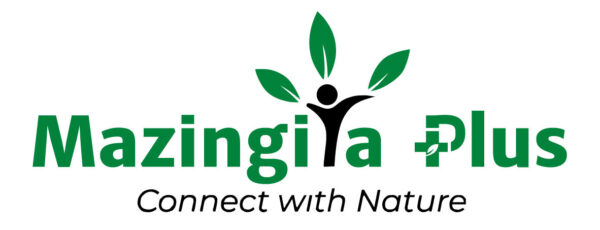Our Programs

Zero waste Model
Zero Waste Model
The zero-waste approach seeks to maximize recycling, minimize waste, reduce consumption and ensure that products are made to be reused, repaired or recycled back into nature or the marketplace. Dar es Salaam constitutes 90% of unplanned squatters' settlement that affects waste collection services. Data shows that about 70% of Municipal Solid Waste generated is organic waste, due to the lack of source separation causing all mixed waste to be transported to dumping sites and increasing the economic burden on the Government and companies, etc. We at Mazingira Plus came up with community-based decentralized solid waste management (Zero Waste communities) to solve the problem.
Key Activities
Source separation and composting, Zero Waste Schools, Zero Plastics to Ocean and Black Soldier Flies (Protein insects) farming

Green School Program
Green School Program
The Green Schools Program is a climate smart program that aims to equip children and young people with right knowledge on at source waste segregation, composting, climate change adaptation and mitigation options, conservation awareness and sustainability. Through that can assure the provision of alternative healthy food supplements in schools from organic vegies and fruits.
Key Activities
Tree Planting, Waste separation and composting, Environment Education and Climate Action Initiative

Community & Beach Cleanup
Community & Beach Cleanup
Thousands of marine animals worldwide have been affected by plastic pollution, including sea turtles, seabirds, and marine mammals. Therefore, Beach clean-ups are vital to mitigate the problem caused by ocean debris and the danger that plastic pollution poses to marine life. Through the community and beach cleanups, we conduct mass awareness campaigns, dialogues and community engagement purposeful for behavioral change and participations.
Key Activities
Community engagement and behavioural change., Data Collection and Policy, Advocate for SUP and Waste and Brand Audits

Mangrove Conservation Project
Mangrove Conservation Project
This is an Ecosystem-based adaptation/nature-based solution to climate change. The project is located in mdimni Village, Mkuranga District in Pwani Region. The project is co-created between the local community and an alliance of four organizations: Mazingira Plus, TCCI, HUDEFO and ETE. The project started in 2020 as the outcome of the World Mangrove Day commemoration where we noticed the devastation of climate change impact due to seawater raise that destructs coastal vegetation, beach erosion, Loss and Damage (destruction of properties), loss of fertile land etc.
Key Activities
Environmental education and climate change awareness, Mangrove Restoration and Protection, Bee Keeping and income generating projects, Eco-Cultural Tourism and Regenerative Farming

Waste Pickers Empowerment
Waste Pickers Empowerment
Only 9% of plastic consumed is recycled, with the rest ending up in landfills or the environment. Plastic’s chemical composition makes it unable to fully decompose, causing pollution to build up and creating problems for our planet and human health. Waste pickers make significant contributions to public health, sanitation, and the environment by promoting resource circulation and reducing the amount of landfill. Yet their recognition in the community is negligible, Mazingira Plus advocates for the Waste Pickers right, recognition, empowerment and value in the community through capacity building, provision of protective gears, incentives, connecting them with reputable recycling firms and legal framework formulations.
Key Activities
Waste pickers empowerment, Capacity buidling and Policy
Our Amazing Partners
We partner with a diverse range of stakeholders, governments, international governmental organizations, civil society and the private sector dedicated to "Connect with Nature". We believe long-term, impactful partnerships are central to achieving our mission. Therefore, we work with and alongside others to shape the world for difference — so every individual can thrive.












Our Affuiliations and Networks

TARA
We are among the founding members of the major national association of recyclers in Tanzania, that is Tanzania Recyclers Association - TARA. This association inspires people to advicate for a clean enviroment in Tanzania. They envision to coordinate and advocate on behalf of commercial and industrial waste management and recycling businesses operating in the United Republic of Tanzania, in an effort to realize and promote environmental resilience, decent jobs and economic growth.

Break Free from Plastic
Mazingira Plus is a proud member of #BreakFreeFromPlastic is the global movement working to achieve a future free from plastic pollution. More than 12,000 organizations and individuals around the world have come together to demand reductions in single-use plastics and to advocate for lasting solutions to the plastic pollution crisis. BFFP members work together to bring about systemic change by tackling plastic pollution across the whole value chain - from extraction to disposal - focusing on prevention rather than cure.

Global Partnership on Plastic Pollution and Marine Litter (GPML)
Mazingira Plus is a proud member of the Global Partnership on Plastic Pollution and Marine Litter (GPML). The GPML is a multi-stakeholder partnership that brings together all actors working to prevent marine litter and plastic pollution. By providing unique global platform to share knowledge and experience, partners are able to work together to create and advance solutions to this pressing global issue.

Agencia Ambiental Pick-Upau
Mazingira Plus joined the regional movement created by the Pick-upau Environmental Agency to mitigate the consequences of the production, consumption, and disposal of single-use plastics.

African Circular Economy Network (ACEN)
We are a member of the African Circular Economy Network (ACEN). The vision of the African Circular Economy Network (ACEN) is to build a restorative African economy that generates well-being and prosperity, inclusive of all its people, through new forms of economic production and consumption which maintain and regenerate its environmental resources.

